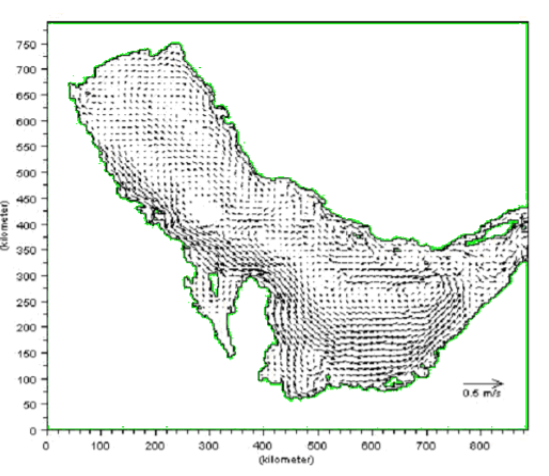Pure water is the fundamental element of all organic life, and it holds special importance to humankind. In the 21st century, drinking water supply has virtually become a basic right to which each person is entitled. Nevertheless, access to it is often impeded by major geographical factors. The issue becomes particularly acute in specific regions deprived of the natural sources of sweet water, which includes the nations of the Middle East.
In this regard, humanity has developed advanced technological solutions, aiming at providing the population of these areas with a stable supply of pure water. In the case of the Middle Eastern countries, this objective is often accomplished through the inauguration of desalination plants, which vary in terms of technological design. Nevertheless, these essential elements of the infrastructure remain vulnerable to the detrimental impact of other factors. Oil spills pose a considerable threat to the proper functioning of desalination plants, and this effect is especially severe in water-deprived areas. The purpose of this paper is to examine the impact of oil spills on the functioning of MSF and RO desalination plants.
Background
Since the dawn of civilization, issues pertaining to water supplies have been topical for the global community. Westall and Brack (2018) write it is an essential component, which enables the existence of carbon-based forms of life. Accordingly, access to pure water is an integral right of every person, as it would not be possible to survive otherwise.
The Earth’s scientific community has allocated considerable resources to the matters of comprehensive water provision. However, despite significant progress, the issue persists in the 21st century. In certain dry areas, such as the surrounding territories of the Arabian Gulf, the amount of sweet water sources is highly insufficient to meet the needs of the population. In order to address the issue, a decision was made to apply scientific knowledge and utilize the immense reserves of saltwater from the Gulf. Desalination plants have entailed a major breakthrough in the area, but they remain vulnerable to environmental factors. In order to assess the impact of such factors, as marine oil spills, on the functioning of desalination plants, an additional review of their various types is required.
MSF and RO Desalination Plants
MSF Desalination Plants
Multi-Stage Flash Distillation (or MSF) is one of the well-established techniques utilized in the process of seawater desalination. Figure 1 shows the schematic image of an MSF unit operated at such plants. According to this method of desalination, seawater is subjected to intense heating across several stages. At each consequent point, the pressure is incrementally reduced, allowing the heated brine to enter the next stage with an appropriate temperature.
Throughout the process, the heating allows plant workers to separate water from salt through evaporating. The vapor is collected in designated chambers, where it is further condensed into freshwater. As heating becomes the cornerstone of MSF desalination, this method requires a considerable amount of energy, which is primarily obtained through fossil fuel burning. Darwish et al. (2012) write that MSF became the predominant technology in the Gulf countries, leading to an increased environmental impact of desalination. Such power plants are associated with high levels of greenhouse gas emissions, contributing to the industry’s carbon footprint.

RO Desalination Plants
Considering the growing environmental concerns and the impact of MSF plants described earlier, it became necessary to propose alternative solutions. However, when working on reducing the environmental impact of desalination plants, it was crucial to do so in light of their primary objective of providing the population with potable water. Darwish et al. (2013) discuss the environmental impact of MSF plants in relation to the perceived effectiveness of the Reverse Osmosis (RO) technology. This method suggests the use of semi-permeable membranes, which separate freshwater from salt (ITOPF, 2011). This way, the consumption of energy could be effectively reduced by nearly 75%, thus alleviating the negative impact of burned fossil fuel (Darwish et al., 2013).
Simultaneously, RO demonstrates better performance in terms of brine and cooling water discharge. Darwish et al. (2013) observe a reduction of this parameter from MSF’s 7.2 cubic meters per day to 2.4. Figure 2 presents a schematic design of an RO desalination plant, increasingly utilized in the contemporary environment. This method possesses evident advantages as compared to MSF technology, but its emergence in the industry can be considered to be a recent tendency.

Oil Spill Impact Analysis
At the same time, the prior sections compare the two leading methods of seawater desalination based on the normal mode of operation. Tahir et al. (2019) state that a system’s resilience in case of emergency is a critical criterion, which is to be considered when evaluating its overall viability. Aside from various natural disasters, the contemporary environment sees a surge in human-made emergencies. In the case of the water desalination industry, oil spills form an area of major concern.
Elshorbagy and Elhakeem (2012) write that such incidents are particularly critical in the Arabian Gulf countries, as they have already forced several important plants in the United Arab Emirates to close. The simulation prepared by Elshorbagy and Elhakeem (2012) suggests a critical level of residual surface oil flow in the Gulf within a timeframe of one month after a disaster, as shown in Figure 3. According to Tahir et al. (2019), Qatar would only have a 48-hour emergency supply of fresh water in case of a large-scale oil spill in the Gulf. Therefore, the preferred plant technology should demonstrate a substantial level of resilience to such challenges.

First of all, the water desalination industry is expected to sustain lesser immediate damage inflicted by an oil spill. Second, the plants cannot remain inactive for a long time, meaning that the recovery period should be as short as possible. Considering the aforementioned information, a 48-hour delay would suffice to cause substantial damage to Qatar’s water supply.
The investigation by ITOPF (2011) has revealed that MSF plants have a long history of active use, which has provided specialists with sufficient experience. It suggests that such plants are more resistant to spills, as certain amounts of oil residue can be tolerated by the system without affecting the heat exchangers. Simultaneously, even a small quantity of oil contaminates the membranes of an RO plant to a considerable degree, rendering them inactive. In addition, these membranes are rather expensive and difficult to replace quickly. These findings imply that, while RO plants are more efficient and environmentally friendly, they remain vulnerable to oil spill incidents in the Gulf.
Conclusion
In conclusion, water desalination is a vital industry, ensuring a steady supply of potable water in countries where it is crucial for the population. The Arabian Gulf nations rely heavily on such plants, and even a short disruption could entail adverse consequences. MSF and RO methods vary in terms of energy consumption, water discharge, and overall effectiveness. While the latter performs better in standard operations, the former is proved to be more resilient in the face of oil spill incidents. In this regard, a viable solution to the problem may comprise the diversification of a country’s desalination industry. Regular operations should rely on RO plants to promote the sphere’s sustainability. However, when an emergency erupts, it should be possible to switch temporarily to MSF procedures.
References
Darwish, M., Hassabou, A. H., & Shomar, B. (2013). Using Seawater Reverse Osmosis (SWRO) desalting system for less environmental impacts in Qatar. Desalination, 309, 113-124. Web.
Elshorbagy, W. E. S., & Elhakeem, A. A. (2012). Forecasting the oil spill impacts on coastal desalination plants in United Arab Emirates. WIT Transactions on Ecology and The Environment, 164, 263-274. Web.
ITOPF. (2014). Effects of oil pollution on social and economic activities. Web.
Sasakura Engineering. (n.d.). Multi-Stage Flash Desalination Plant (MSF). Web.
Tahir, F., Baloch, A. A. B., & Ali, H. (2019). Resilience of desalination plants for sustainable water supply in Middle East. In P. A. Khaiter & M. G. Erechtchoukova (Eds.), Sustainability perspectives: Science, policy and practice (pp. 303-329). Springer
Tularam, A. (2007). Schematic diagram of an RO desalination treatment plant. ResearchGate. Web.
Westfall, F., & Brack, A. (2018). The importance of water for life. Space Science Reviews, 214, 50. Web.